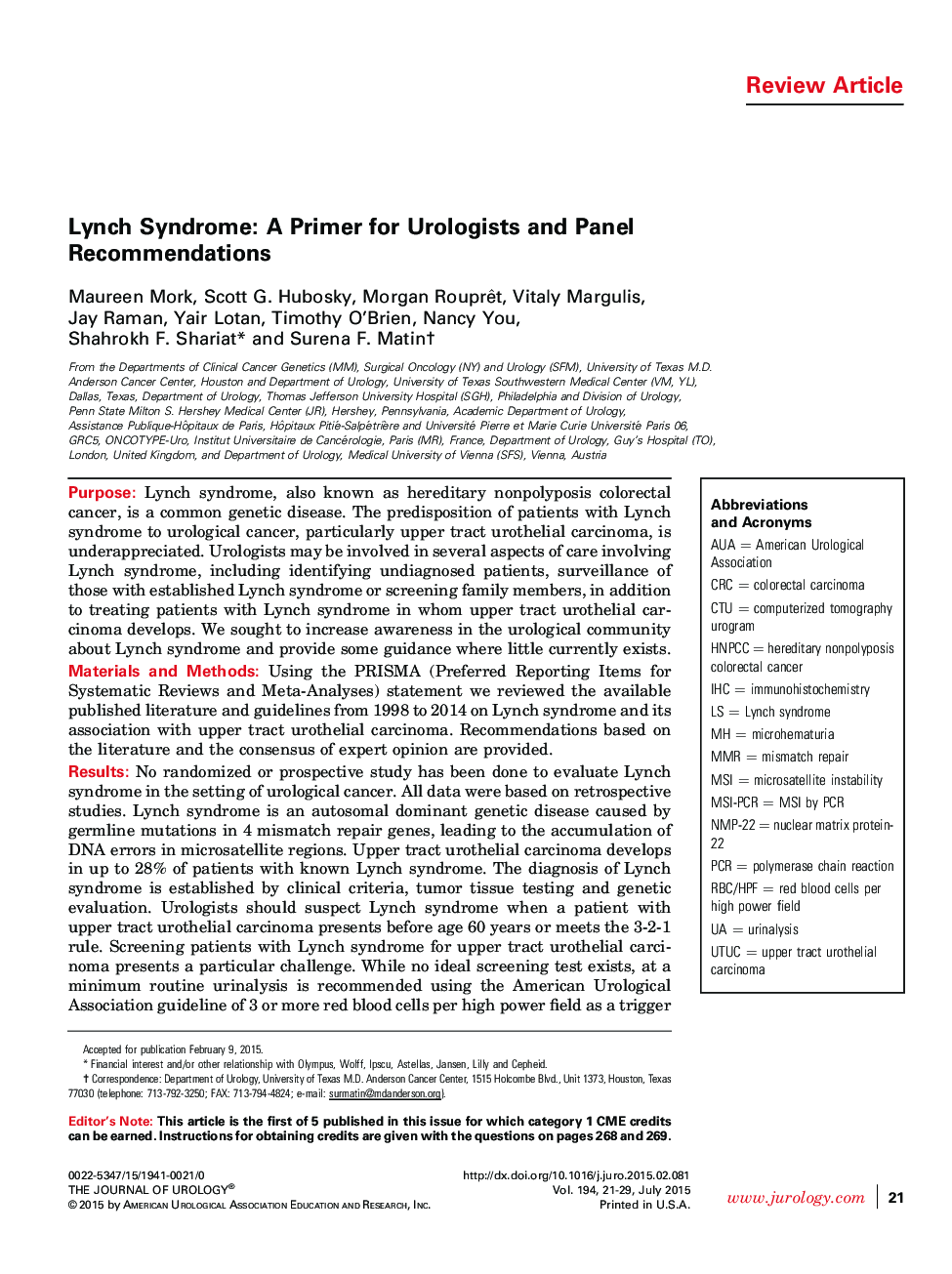| کد مقاله | کد نشریه | سال انتشار | مقاله انگلیسی | نسخه تمام متن |
|---|---|---|---|---|
| 3861661 | 1598888 | 2015 | 9 صفحه PDF | دانلود رایگان |
PurposeLynch syndrome, also known as hereditary nonpolyposis colorectal cancer, is a common genetic disease. The predisposition of patients with Lynch syndrome to urological cancer, particularly upper tract urothelial carcinoma, is underappreciated. Urologists may be involved in several aspects of care involving Lynch syndrome, including identifying undiagnosed patients, surveillance of those with established Lynch syndrome or screening family members, in addition to treating patients with Lynch syndrome in whom upper tract urothelial carcinoma develops. We sought to increase awareness in the urological community about Lynch syndrome and provide some guidance where little currently exists.Materials and MethodsUsing the PRISMA (Preferred Reporting Items for Systematic Reviews and Meta-Analyses) statement we reviewed the available published literature and guidelines from 1998 to 2014 on Lynch syndrome and its association with upper tract urothelial carcinoma. Recommendations based on the literature and the consensus of expert opinion are provided.ResultsNo randomized or prospective study has been done to evaluate Lynch syndrome in the setting of urological cancer. All data were based on retrospective studies. Lynch syndrome is an autosomal dominant genetic disease caused by germline mutations in 4 mismatch repair genes, leading to the accumulation of DNA errors in microsatellite regions. Upper tract urothelial carcinoma develops in up to 28% of patients with known Lynch syndrome. The diagnosis of Lynch syndrome is established by clinical criteria, tumor tissue testing and genetic evaluation. Urologists should suspect Lynch syndrome when a patient with upper tract urothelial carcinoma presents before age 60 years or meets the 3-2-1 rule. Screening patients with Lynch syndrome for upper tract urothelial carcinoma presents a particular challenge. While no ideal screening test exists, at a minimum routine urinalysis is recommended using the American Urological Association guideline of 3 or more red blood cells per high power field as a trigger for further assessment. Upper tract urothelial carcinoma associated with Lynch syndrome presents at a younger age than sporadic upper tract urothelial carcinoma. It shows a higher proportion of ureteral cancer with a female preponderance and a possible predisposition to bilaterality.ConclusionsLynch syndrome is a common genetic disease that is an underappreciated cause of upper tract urothelial carcinoma and possibly other urological cancers. Optimal screening for upper tract urothelial carcinoma in this population is unclear. Further study is needed to identify the best screening test and interval of testing. Urologists should consider routine tissue testing of de novo upper tract urothelial carcinoma tissue in individuals at risk.
Journal: The Journal of Urology - Volume 194, Issue 1, July 2015, Pages 21–29
